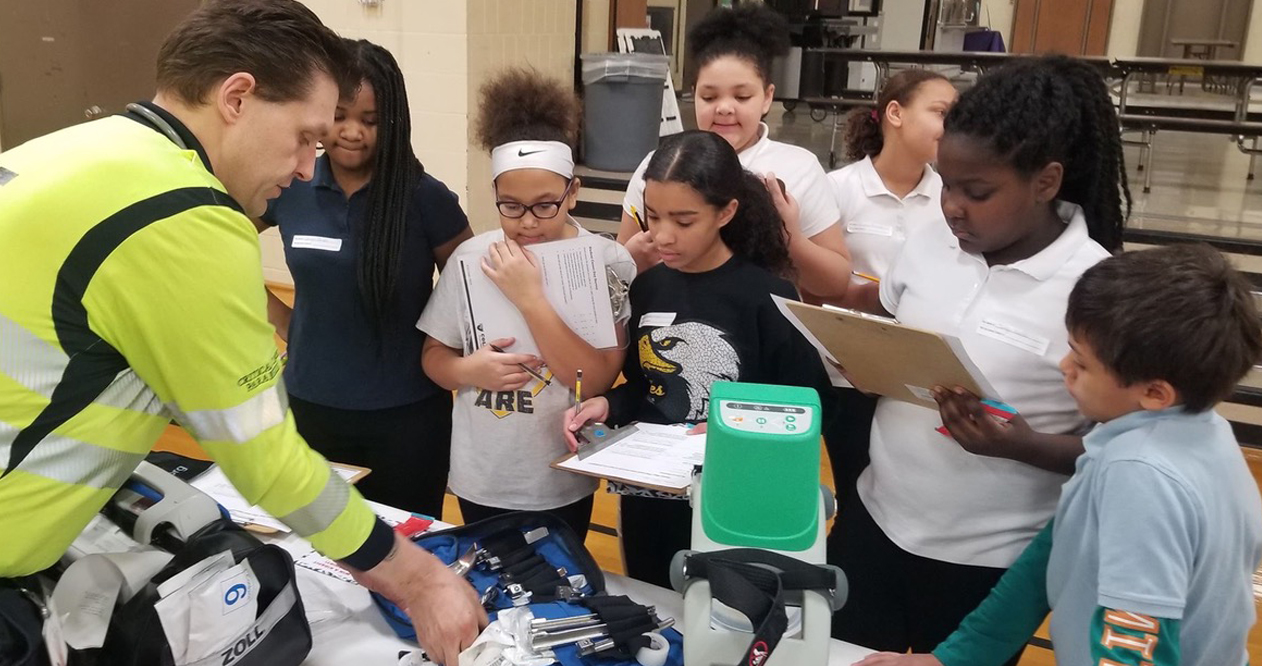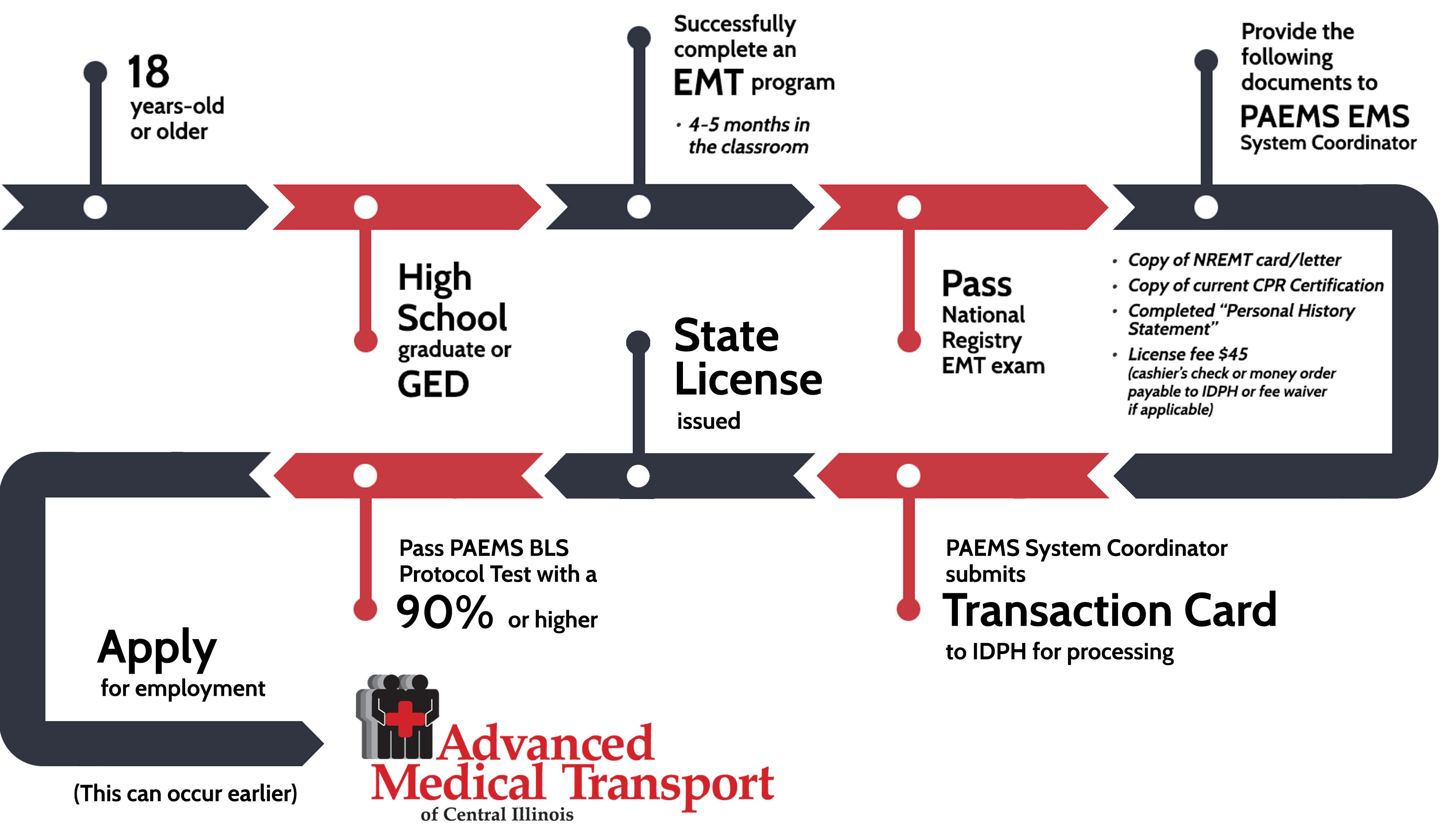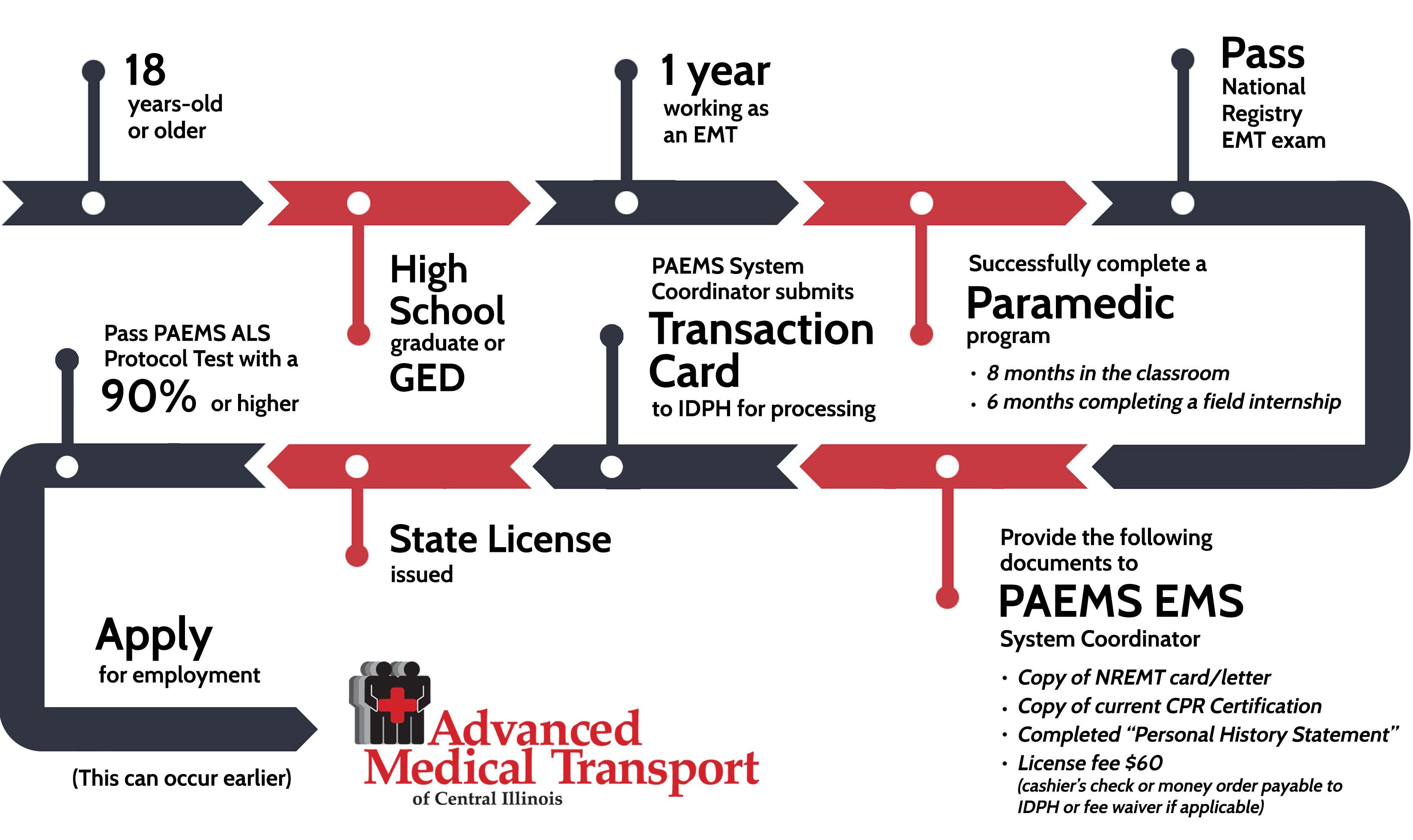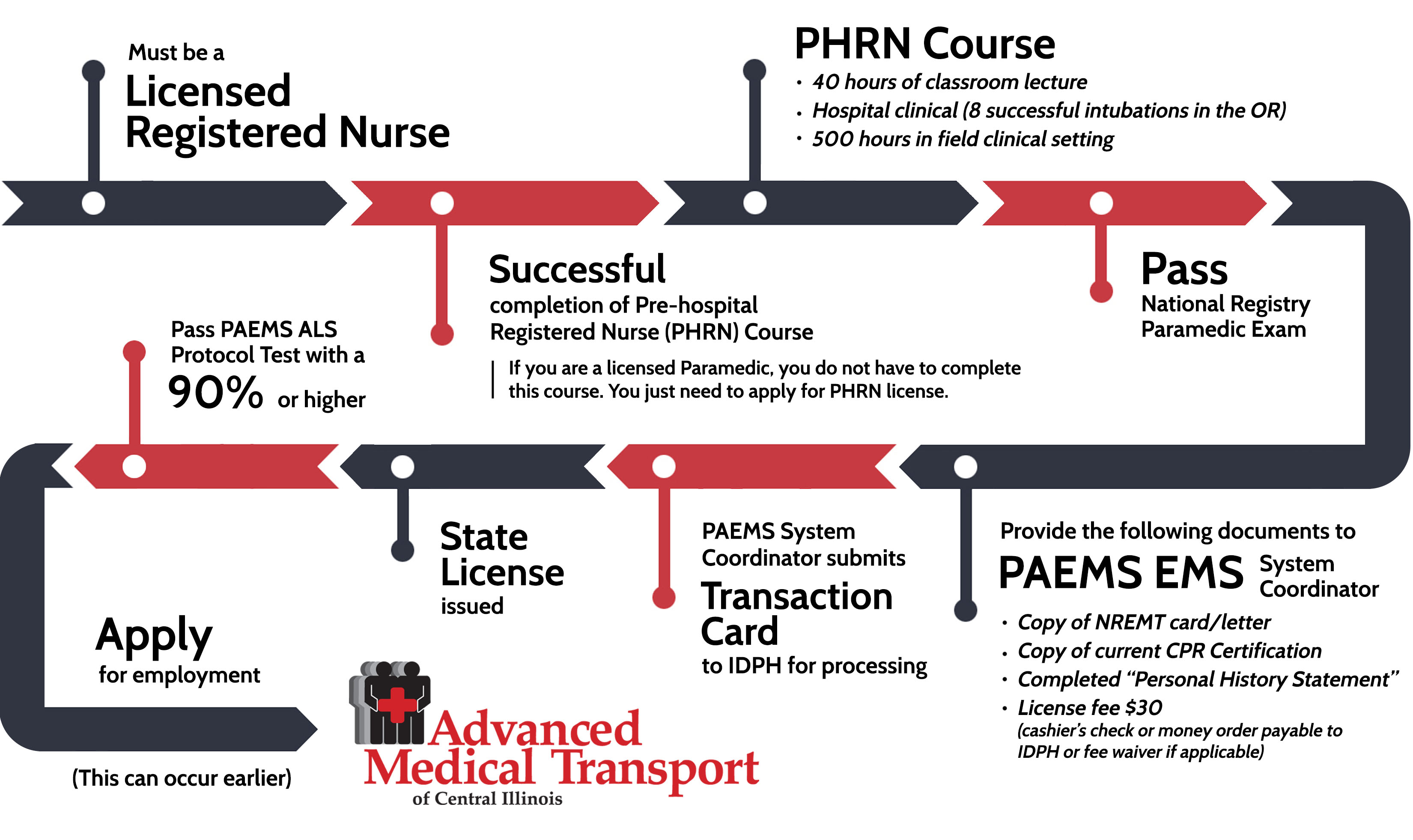An EMT is a person with medical skills. AMT (Advanced Medical Transport) is the largest provider of Emergency Medical Services in downstate Illinois.
Career Pathways

Advanced Medical Transport strives to be an employer of choice in healthcare and community care. Among our nearly 400 team members are many who were here during the company’s very beginning 30 years ago.
Most of our leadership and executive team began as EMTs and Paramedics in our ambulances. AMT is a place to build an exciting, fulfilling career caring for others in the cities and towns we serve - about 65 total!
We offer comprehensive career building education through our fully-accredited EMS Academy. Below, we detail the positions within our organization, along with flow charts showing the steps involved to get there. As always, we are here to assist you in any way you need. Contact Us Today!
EMT-Basic
EMT-Basic is the entry-level position in Emergency Medical Services (EMS). EMT-Basics are able to control life threatening bleeding, provide basic cardiac life support, maintain an airway, splint an injured extremity, and administer lifesaving medications. EMT’s working at AMT who wish to become Paramedics are eligible for assistance with tuition and scheduling. Contact us for more information.
Paramedic
Paramedics are trained with knowledge of the acute, critical changes in physiology, psychological, and clinical symptoms as they pertain to the out-of-hospital care of the neonate, infant, child, adolescent, adult, and geriatric patient. They perform advanced procedures like IVs and Endotracheal Intubation, and administer more medications.
Critical Care Transport Paramedic
Critical Care Transport Paramedics are Paramedics with additional training to manage patients who need mobile intensive care. AMT, with Dr. George Hevesy, started the very first Critical Care ground transport program in Illinois in 1993.
Pre-Hospital Registered Nurse
Pre-Hospital Registered Nurses are nurses who are trained to function in a Pre-Hospital emergency capacity. At AMT, our PHRNs function as paramedics. Some of our providers hold both certifications.
Illinois Patient Transport Technician
Illinois Patient Transport Technicians provide prompt, compassionate transport, via secure car, for persons having a behavioral or mental health crisis and needing special resources. IPT Technicians provide transportation all throughout the state of Illinois.
Vehicle Service Technician
Vehicle Service Technicians work at AMT Headquarters in Peoria in our Fleet Services department. VSTs make sure our vehicles are cleaned, disinfected, stocked, and ready go in service on a moments notice. Vehicle Service Technician is an entry-level position at AMT that allows for a person to work in the environment of ambulance operations while they are working toward becoming certified for Illinois Patient Transport or as an EMT.
What's the Difference
EMTs and Paramedics look almost identical. AMT ambulances typically come with one of each, but are also sometimes staffed with Pre-Hospital Nurses and Critical Care Paramedics. They all work similar shifts, wear similar uniforms, spend their days inside an ambulance, and their jobs are to save lives. The primary differences between certification levels are training, responsibilities, and salary.
Training & Responsibilities
An EMT typically completes 120+ hours of classroom training, plus field internship, before becoming certified.
A paramedic, on the other hand, builds on that initial EMT foundation by completing 1,500+ hours of additional classroom and clinical training before certification. This higher level of training can take one to two years to complete.
EMTs and paramedics share many of the same responsibilities as first responders—providing emergency aid for those suffering from injury or illness.
The primary difference between the two is that with the exception of auto-injectors (such as the EpiPen), EMTs are not allowed to do invasive procedures.
The advanced training of paramedics allows them to do everything an EMT does plus administer many medications, start IVs, and provide advanced airway management. This might include intubation, CPAP or BiPAP, and other advanced procedures. In 1993, Advanced Medical Transport pioneered the first Critical Care ground transport program in Illinois. A Critical Care Paramedic is similar to an Intensive Care Unit provider, and may transport a ventilated patient , or one with multiple IV drips at once.







